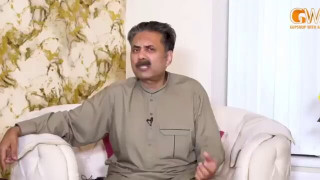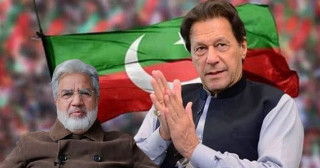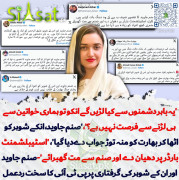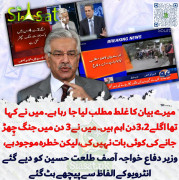QaiserMirza
Chief Minister (5k+ posts)
MUNKAR ACTIONS REGARDING MOURNING CEREMONIES:
Most Muslims are clueless when it comes to correctly carrying out the Sunnah of mourning a loved one. For some bizarre reason we have adopted the ways of the non-Muslims in things like gathering at the house of the deceased on the 40th day to do dua, read Quran over the deceased, placing flowers on their graves, gathering at their houses for dinner, striking our faces to show how much we are grieving etc.
These are [munkar] evil innovations that will not gain you any reward. "In order for a good deed to be accepted it must be for the sake of Allah alone and in accordance with the Sunnah." [Tafsir ibn Kathir] So doing these things will gain you a ticket to Jahannam instead and we should be very cautious of fulfilling ANY of these actions. The history of some of this corruption can be traced back to the polytheists themselves, the Greeks who every 40 days, 3 months, 6 months, 9 months, 1 year and every year afterwards etc gather to mourn their deceased. They hold a memorial service in those periods and the women wear black while the men wear a black armband. Sound familiar? This is not the practice of the Muslims yet far more common are we witnessing their ignorant practices flourish among our oblivious bretheren.
Let us get things straight, NONE of these things are from Islam and should NOT be done:
To wear black specifically to honor the deceased.
Institutionalizing the placing of flowers at the site of the grave.
To lower a national flag in honor of the deceased.
There is no mention of a moment-of-silence in our Dn.
There is no mention of Quran Khanis (gathering people to recite Quran for the deceased) in the Sunnah of Muhammad - sal Allhu alayhi wa sallam. All goodness is in following the guidance of our Prophet.
There is no mention of gathering people 40 days, or the like, after the death to recite Quran for the deceased.
There is no mention of having an annual gathering where guests recite the Quran for the deceased.
There is no mention in the Sunnah of collectively reciting surat al-Fatiha for the deceased.
Wailing, striking the face, uttering things Allah would not be pleased with.
Turning the dying person's body to face the qiblah.
The removal of menustrating women from a dead or dying person's presence.
Leaving dying men among the women and only coming to collect their bodies after they have died.
Recital of the Qur'aan for money at the time of the person's death.
Placing candles near the dead body until morning.
Putting cotton in the throat, nostrils, and anus of the dead person.
Clipping the fingernails of the dead body and shaving it's pubic hair.
Recital of Surah Al-Faatihah, Al-Baqarah and the last two verses of Soorah Al-Baqarah, based on a fabricated narration falsely attributed to Ibn'Umar.
"Whoever recites Soorah al-Ikhlaas 1000 times will be safeguarded from Hell," is a fabricated tradition.
Instructing (talqeen) those who have already died to recite the declaration of faith: laa ilaaha illa-laah, [This practice is of no use to the dead. The Prophet (sal allah alayhi wasalam) recommended that those who are dying should be encouraged to recite the declaration of faith.]
Writing du'aas on the shroud.
Transferring the body of the deceased over long distances in order to bury the person near the graves of the pious or in their home countries.
Reciting aloud Qur'aan, poems or words of remembrance while carrying the bier.
Excessive talking talking in loud voices during the time of the burial.
Sprinkling rose water when placing the body in the grave and everybody covering the grave with sand while reciting specific prayers.
Reciting shahada three times after closing the grave and sprinkling water on it.
Placing flowers ,twigs,etc. on the graves,based on Prophet Muhammad's (sal allah alyhi wasalam) action.What the Prophet did was special for him and he did not do it for every grave. [Sahih Al-Bukhari,vol.2,pp.249-50#443.]
Gathering at the home of the dead person and obliging the family of the deceased to provide food for the guests.
Recital of Soorah Yaaseen at the graveyard.
Avoiding the celebration of 'Eid because of a death in the family. Refusing to visit people on 'Eid for the same reason.
Touching or wiping the tombs of the righteous in the belief that blessings will be gained from this act.
Circumbulating the Prophet's grave or any other grave.
Putting flag poles with white flags outside the home of one who has died to indicate that death has occurred in the family. This is a practice of Hindu origin found amongst Muslims in Southern Philippines.
SO THEN WHAT SHOULD WE DO?
We should hasten to pay off the debts of the deceased as the Prophet [sal allah alayhi wasalam] said: "A believer's soul remains in suspense until all his debts are paid off." [Tirmithi]
We should give our condolences to the family of the deceased. This could be done in the Masjid, at the gravesite, at their homes, etc. But excessively long gatherings at the deceaseds home should not be encouraged.
We should make food for the family of the deceased and not burden them with having to make food for the entire community.
Raising ones voice in wailing and lamenting, striking the cheeks and eulogizing the deceased are all bidah and actions of the jaahiliyyah. It was reported in a hadeeth: He is not one of us who strikes his cheeks, rends his garments and calls with the call of the jaahiliyyah. (Narrated by al-Bukhaari, 1294, Fath 3/163; Muslim, 103; Ahmad, 1/244).
When a death befalls someone, it is permissible to cry (without wailing) and to feel sadness in the heart. When the son of Rasul Allh - sal Allhu alayhi wa sallam - was dying, he held his small body in his hand and began crying. The Sahbah who saw him crying inquired, What are these tears, O Messenger of Allh. He - sal Allhu alayhi wa sallam - replied, The eye cries, and the heart is saddened, but we do not say anything other then that which is pleasing to our Lord, and we, indeed O Ibrahm, are saddened by our separation from you.
We should all attend the funeral prayer and, for men, follow the funeral to the gravesite. The women should not follow, as Umm Salamah said, We were forbidden from following the funeral processions.
We may give Sadaqah on behalf of the deceased, and we may perform Hajj on their behalf.
And above all, we should make Dua, and lots of it, for the deceased. This is how the Prophet - sal Allhu alayhi wa sallam - taught us, as in the funeral prayer and the hadith of the servants actions being cut off except from three things - he mentioned, .... a pious child that makes dua for (the deceased).
It is recommended that righteous muslims who knew the deceased well and were among his or her neighbors should testify to others about the good qualities of the deceased. Anas quote the Prophet(sal allah alayhi wasalam) as saying, "For any muslim who dies and four of his close neighbors testify that they have known him to be good, Allah-the Blessed, the Highest-will say, 'I have accepted your testimony and forgiven him for what you do not know about.' [Collected by Ahmad and authenticated in Ahkaamul-Janaa'iz, pp.45-6]
Taken from>-- Lightofislam.


























